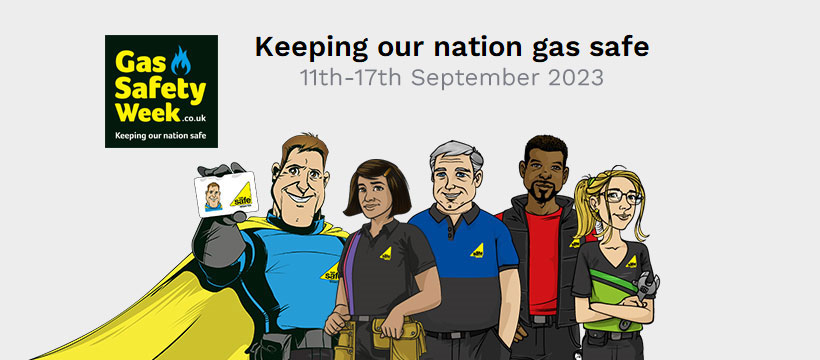
We are proud to support Gas Safety Week, taking place between the 11th and 17th September 2023. Organised by the Gas Safe Register (the official list of gas engineers legally permitted to work on gas), Gas Safety Week aims to raise awareness of gas safety and the importance of taking care of your gas appliances.
Quick Links
- Why is Gas Safety Important?
- How Gas Safety Aware is the UK?
- What is the Gas Safety Advice in the UK?
- Further Information
Why is Gas Safety Important?
Carbon Monoxide (CO) is an invisible, tasteless, odourless, but rapid killer. Ensuring your gas appliances are properly fitted and serviced is critical to preventing CO poisoning, as well as other gas leaks, fires, and explosions. By taking care of your gas appliances, you are taking care of your family, friends, and community.
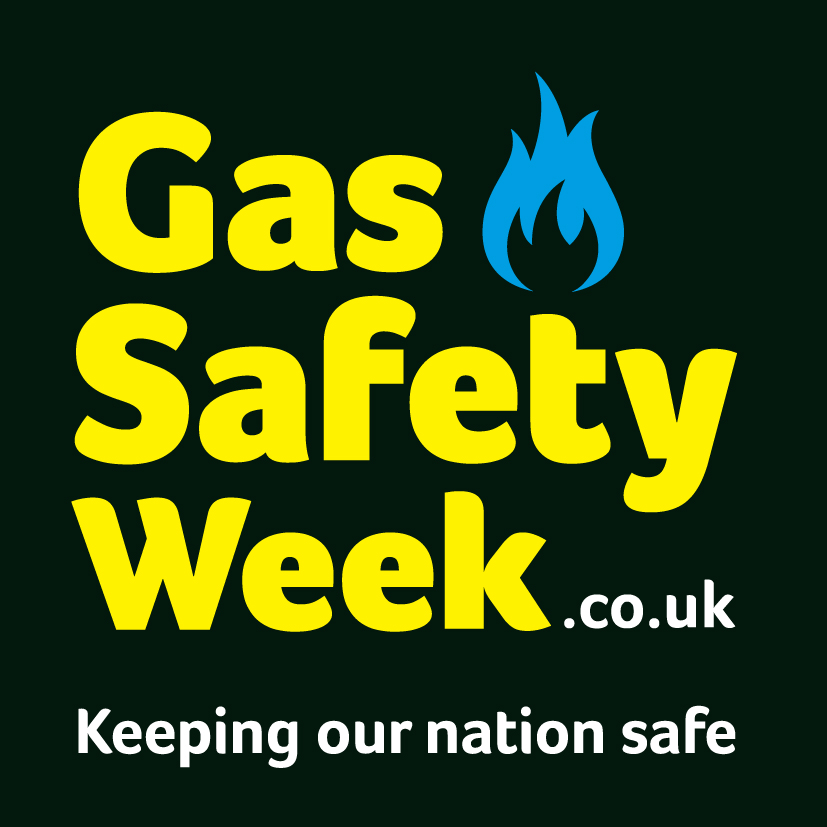
How Gas Safety Aware is the UK?
Nine in ten homeowners in Brighton and Oxford said they were confident spotting the signs and symptoms of unsafe gas. Furthermore, 99% of respondents believed their home would pass a gas safety spot check. However, a national survey commissioned by the Gas Safe Register found that just 4 (0.2%) of the 2000 homes inspected would have passed a gas safety test.[1]
Based on the Gas Safe Register's new Gas Safety Challenge, the national survey tested people's knowledge of nine key gas safety criteria, including:
- Characteristics of healthy flames from a gas hob
- Flue blockages
- Boiler error codes
- Smells, sights, and sounds that may indicate a problem
- How to switch off gas supplies
The Gas Safe Register's Gas Safety Challenge is free and can be accessed via YouTube.
In both Oxford and Brighton, over half of homeowners relying on gas for heating, hot water, and cooking did not know how to switch off their gas supply. The survey also found that approximately a third of Oxford respondents were unaware that a gas-safe hob flame should burn crisp and blue.
Moreover, 36% of the Oxford residents that took part had inspected their home's flue themselves. What's more, 4% of that 36% had attempted to remove blockages. Flues should only be inspected and cleared by Gas Safe registered engineers.
A worrying 63% of surveyed Oxford homeowners did not have a carbon monoxide (CO) alarm, or, if they did, were unsure about whether it was functional. Additionally, two in five Oxford residents could not spot the signs and symptoms of CO poisoning.
Bob Kerr, Gas Services Director at the Gas Safe Register, said of the findings:
"What's clear from our research is that there's a misguided confidence amongst the UK public - what they think they know and how that plays out in their homes is very different." [2]
- Bob Ker, Gas Services Director at the Gas Safe Register
What is the Gas Safety Advice in the UK?
As evidenced by the Gas Safe Register's research, a lack of gas safety awareness is prevalent among the British public. This significantly increases the risk of CO poisoning, fires, and explosions. That's why we've outlined some general UK gas safety advice, as well as specific pointers for landlords, tenants, workplaces, and schools.
General Gas Safety Advice
Whether you are a homeowner, landlord, tenant, or employer, the following advice will protect you, your family, friends, and neighbours.[3]
- Check your gas appliances every year: gas appliances should be safety checked once a year and serviced regularly by a Gas Safe registered engineer.
- Check your engineer is Gas Safe registered: find a Gas Safe registered engineer or check that your engineer is registered at GasSafeRegister.co.uk. Alternatively, call the free helpline on 0800 408 5500.
- Check that your engineer is qualified for the type of gas work you require: e.g. natural gas or domestic boiler. This information is on the back of your gas engineer’s Gas Safe ID card and on the Gas Safe Register's website.
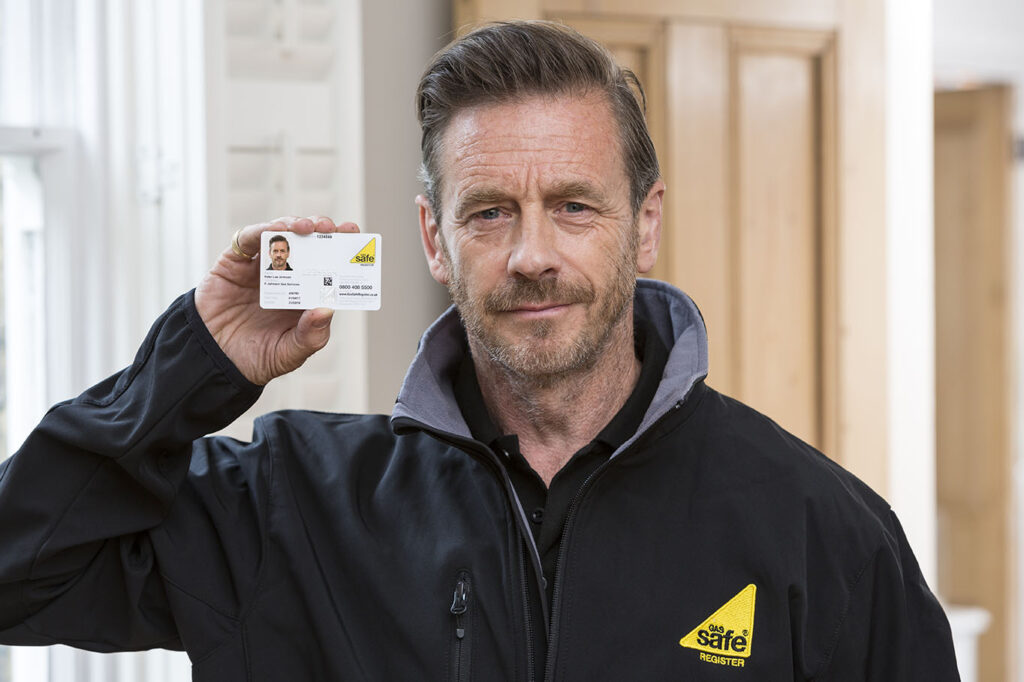
- Check for warning signs that could indicate your gas appliances are not working correctly: for instance, lazy yellow/orange flames instead of crisp blue ones; black marks on or around your appliance; a pilot light that keeps going out; and too much condensation in the room.
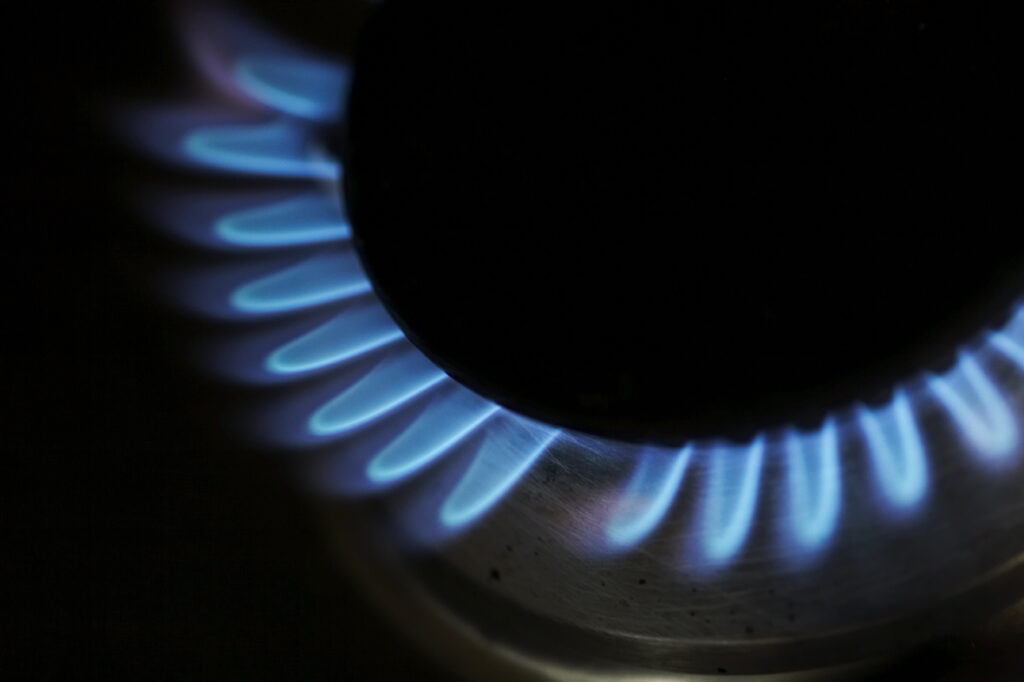
- Know the six main symptoms of carbon monoxide poisoning: headaches, dizziness, breathlessness, nausea, collapse, and loss of consciousness.
- Install an audible carbon monoxide alarm and make sure your family, friends, tenants, and colleagues also install one: check that CO alarms are marked EN50291 and display the British Standards' Kitemark.
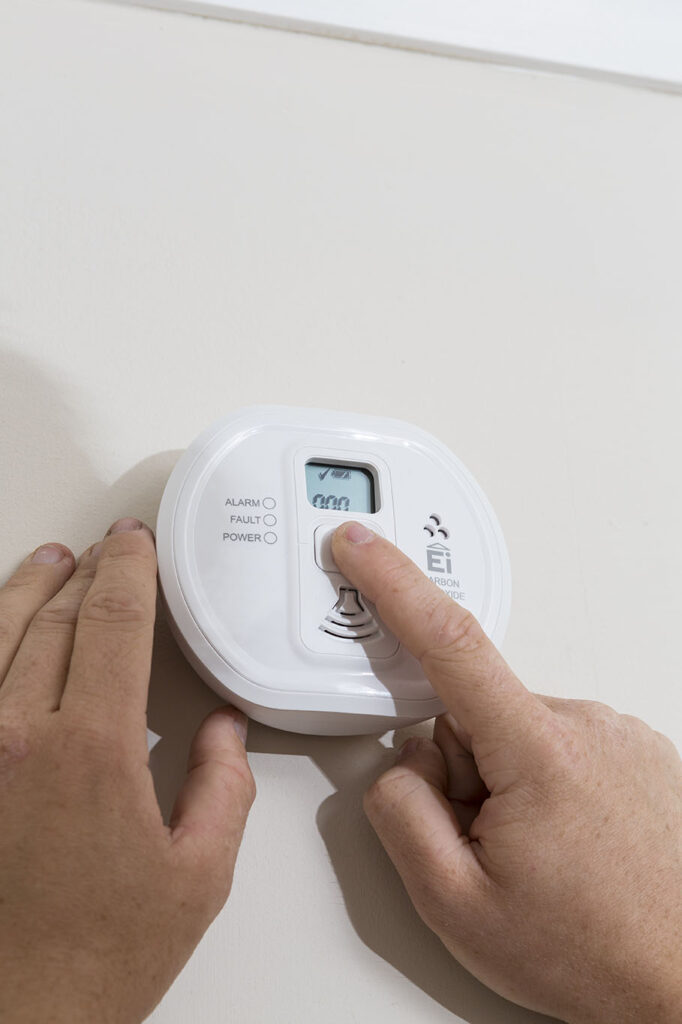
- Look out for your local community: help friends, relatives, and neighbours to keep gas safe. Make sure they have their appliances inspected and serviced regularly. Some people may be unaware of what is needed to maintain gas safety. Therefore, helping to spread awareness of gas safety requirements and advice will go a long way to ensuring the well-being of your community.
Gas Safety Advice for Landlords
Landlords are legally responsible for their tenants and therefore must maintain gas safety. Landlords and/or their agents are duty-bound to comply with the following.[4]
- Maintain the safe condition of gas pipework, appliances, and flues provided for tenants.
- Annually safety check all gas appliances and flues provided for your tenants’ use: tenants can report landlords to the HSE if they do not provide yearly checks. You can register for a free annual reminder email and/or text by visiting StayGasSafe.co.uk.
- Provide a Gas Safety Record to an existing tenant within 28 days of completing the check or to a new tenant before they move in.
- Keep a copy of the Gas Safety Record until two further checks have taken place.
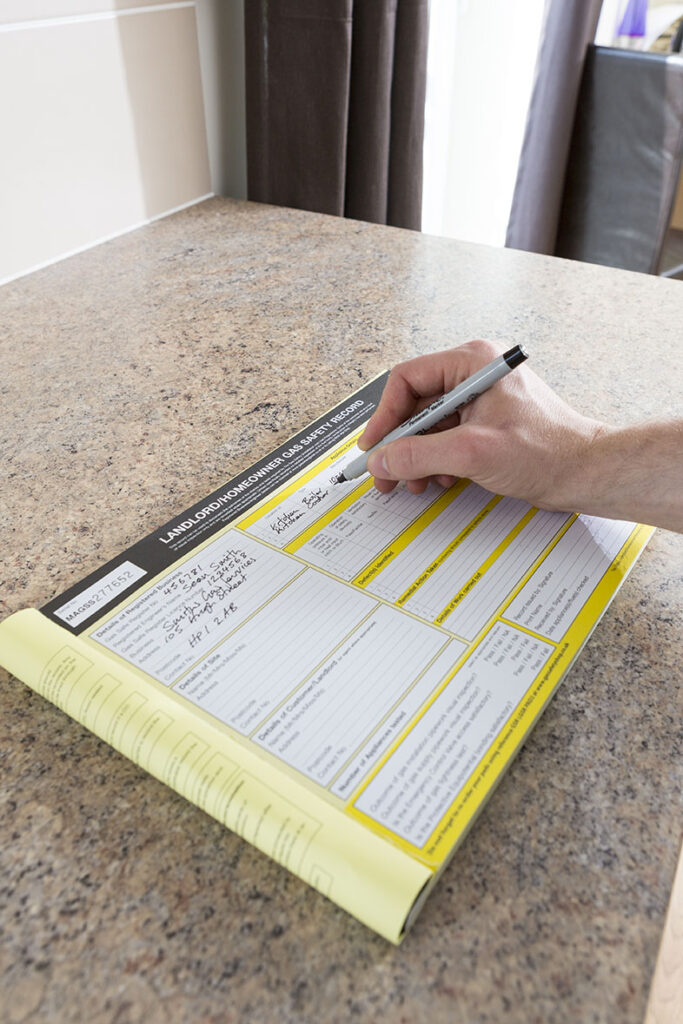
- Employ a Gas Safe registered engineer to perform maintenance and annual safety checks: verify that your gas engineer is certified to work on your appliances by checking their Gas Safe ID. Landlords should encourage tenants to check the card when the engineer arrives at the property. You can also find this information on the Gas Safe Register.
- Ensure all gas equipment, including any appliances left by the previous tenant, is safe or otherwise removed before re-letting.
- Fit a BS 50291 Carbon Monoxide alarm in all rooms that are used as living accommodation and have a fixed combustion appliance: introduced in October 2022, this law applies to all rental homes in England including buy-to-lets, licensed and unlicensed HMOs. The term "fixed combustion appliance" covers gas heaters and boilers, log-burning stoves, and oil boilers. However, it does not extend to gas cookers.
- Social housing landlords or their agents must install a BS 5839-6 smoke alarm on every storey where rooms are being used as living accommodation.
- Repair or replace faulty smoke and/or carbon monoxide alarms.
- Smoke and CO alarms must be fully functional on the day the tenancy commences: keep reports detailing alarm functionality.
Gas Safety Advice for Tenants
In addition to checking that any Gas Engineer who arrives at the property is both Gas Safe registered and qualified to carry out the work required, tenants should perform the below checks.[5]
- Check their landlord’s Gas Safety Record: legally landlords are obliged to ensure gas pipework, appliances, and flues supplied for tenants' use are kept in good condition. They must also arrange yearly gas safety checks and provide tenants with a record of the check. If your landlord does not do this, report their details to the HSE.
- Annually check any gas appliances you own: landlords are not responsible for gas appliances that you own. Therefore, it is your responsibility to get them safety checked once a year and regularly serviced by a qualified and Gas Safe registered engineer. You can register for a yearly reminder at StayGasSafe.co.uk.
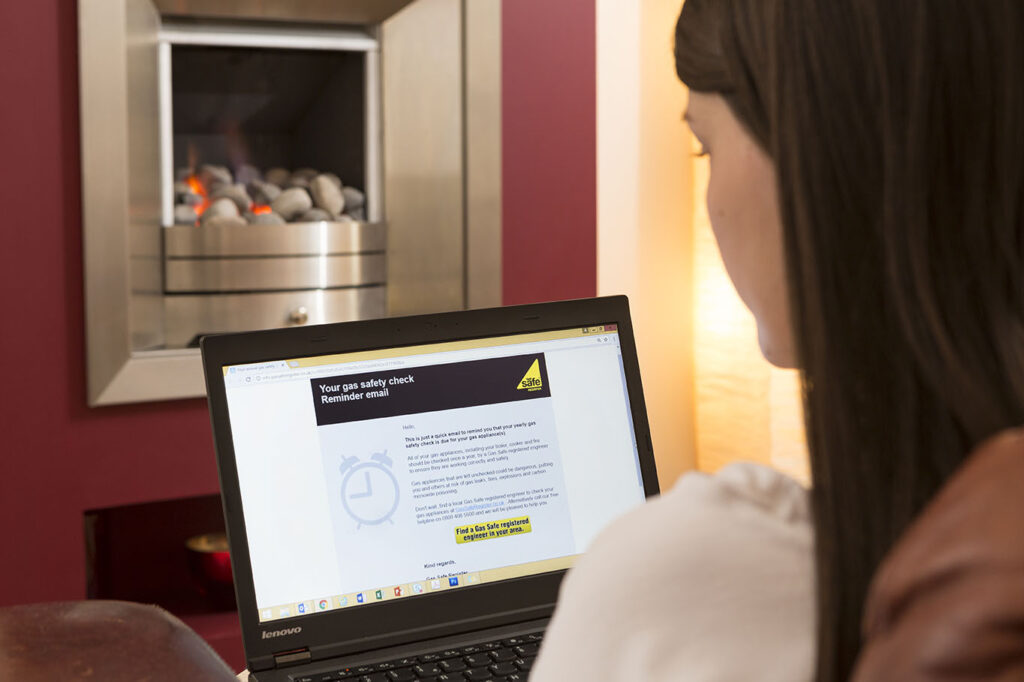
Gas Safety Advice for Workplaces
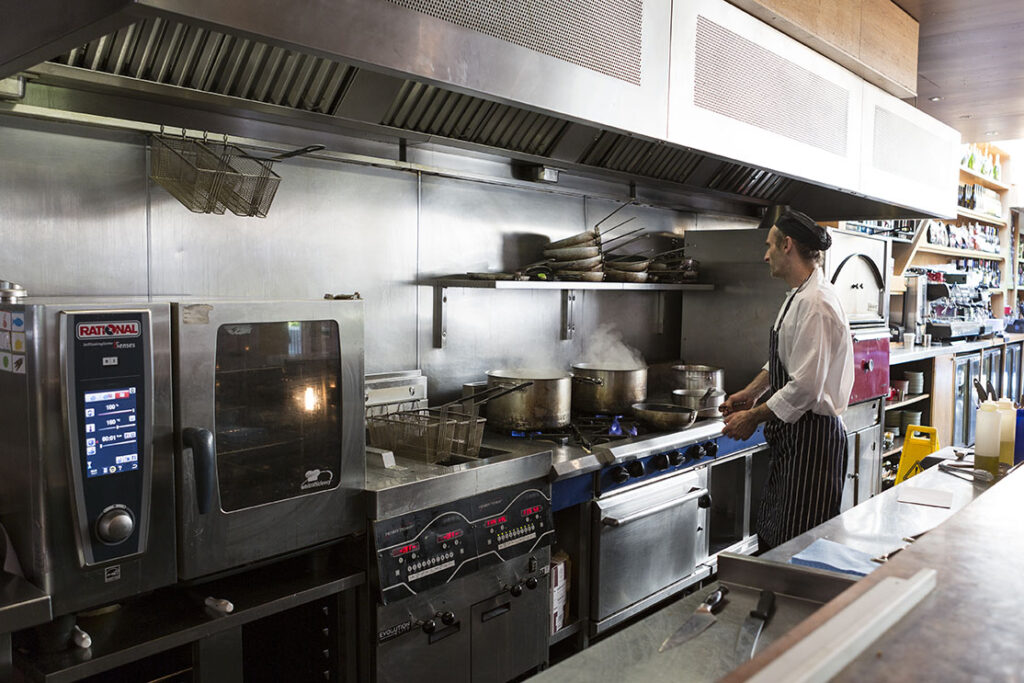
Gas appliances, installation pipework, and flues under an employer's control must be maintained safely. Businesses and workplaces are required to monitor gas appliances for warning signs; install EN 50291-compliant CO alarms; and ensure all employees know the six signs of carbon monoxide poisoning. In addition to this, employers must comply with the following.[6]
- Gas equipment must be installed, commissioned, and maintained by a Gas Safe registered engineer: gas appliances should undergo an annual safety check and be serviced regularly by a Gas Safe registered engineer. Make sure you obtain the relevant paperwork from your gas engineer so that you can produce evidence during an Environmental Health inspection. The Environmental Health Officer (EHO) may serve a formal notice if you do not provide evidence of ongoing maintenance or if there are safety concerns.
- Ensure that your gas engineer is Gas Safe registered and qualified for the job: the onus is on you to ensure that your gas engineer is Gas Safe registered and has the appropriate qualifications to work on your gas supply and appliances. For example:
- In a fish and chip shop, engineers must be qualified to work on:
- Natural gas/ LPG
- Catering
- Fish and chip range
- In a mobile catering vehicle, engineers must be qualified to work on:
- LPG
- Commercial mobile catering
- [The appliance type] – for example, commercial catering range cookers LPG
- In a fish and chip shop, engineers must be qualified to work on:
You can verify which gas types and appliances your engineer is qualified to work on by checking the back of their Gas Safe ID card or by looking them up on GasSafeRegister.co.uk.
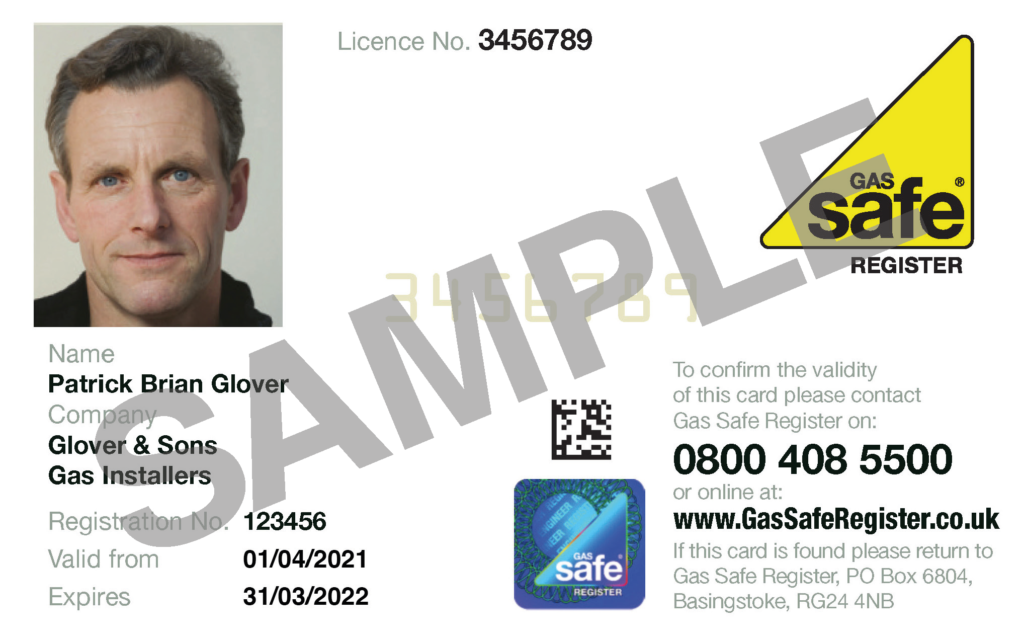
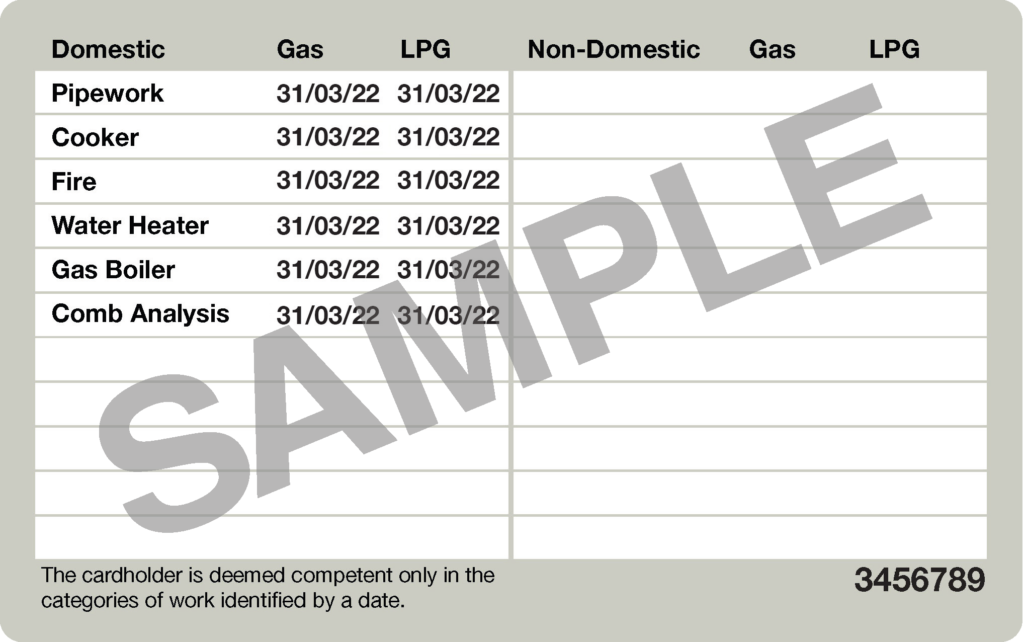
- Never conduct or allow unqualified employees to perform inspections or repairs on gas appliances: in workplaces such as shops, restaurants, and hospitals, all gas work must be carried out by an appropriately qualified Gas Safe registered engineer. In factories, mines, quarries, agricultural premises, construction site huts, and sewage works, a competent person/employee may perform gas fitting work. In these situations, it is the responsibility of the employer to verify the competency of the elected employee. Competent people are Gas Safe registered and possess the relevant qualifications to work on your gas supply and appliances.
- Ensure that rooms with gas appliances have sufficient ventilation: don't block air inlets or obstruct flues and chimneys
- Immediately switch off the gas supply and evacuate the building in the event of a gas leak: you should also call the National Gas Emergency Service, your gas supplier, and the police. Only a qualified, competent individual (i.e., an appropriately qualified Gas Safe registered engineer) is permitted to address gas leaks and switch the supply on after the issue is resolved.
- Consider the risk of explosion in industrial settings: provide explosion relief and/or flame-failure protection as necessary; ensure there is enough ventilation to prevent the accumulation of CO and remove combustion products; train employees in safely purging, lighting up, and shutting down the plant.
Gas Safety Advice for Schools

Schools should follow all the same advice outlined for workplaces. For example, ensure gas appliances are annually checked and regularly maintained by a qualified Gas Safe registered engineer; install carbon monoxide alarms; and provide adequate ventilation.
Shout Out UK, a social enterprise dedicated to bringing political and media literacy education to everyone, offers some additional gas safety suggestions.[7]
- Install gas leak detection systems
- Educate all staff on gas safety procedures
- Practice emergency procedures to ensure everyone in the school community is aware of these protocols
- Embrace green gas solutions
Further Information
For gas safety advice and to find or check an engineer, please visit the Gas Safe Register or call the free helpline on 0800 408 5500.

At PASS Ltd, we offer a range of gas safety instruments including gas leak detectors, flue gas analysers, flue gas analyser kits, and optical gas detection thermal cameras.
Browse Our Extensive Range of Gas Analysers & HVAC Equipment
View Our Array of Optical Gas Detection Thermal Cameras
For more information regarding any of these products, please contact our Sales team on 01642 931 329 or via our online form.
[1] The following sources provided the information for this section:
- Ellie Crabbe, 'Brighton residents mistakenly confident in their gas safety knowledge, study finds', The Argus, last accessed 08 September 2023.
- Mathew Norman, 'Survey shows homeowners not clued up on gas safety in homes', Oxford Mail, last accessed 08 September 2023.
[2] Mathew Norman, 'Survey shows homeowners not clued up on gas safety in homes'.
[3] The following source provided the information for this section:
- Gas Safe Register, Gas Safety Week: Fighting for a Gas Safe Nation/ Helping everyone stay gas safe.
[4] The following sources provided the information for this section:
- Gas Safe Register, Gas Safety Week: Fighting for a Gas Safe Nation/ Landlords legal responsibilities - Annual Gas Safety Checks.
- Proper118.com News Team, Landlords warned over mandatory smoke and carbon monoxide alarms rule, last accessed 08 September 2023.
[5] The following source provided the information for this section:
- Gas Safe Register, Gas Safety Week: Fighting for a Gas Safe Nation/ Helping everyone stay gas safe, (Tenant Article).
[6] The following sources provided the information for this section:
- Sarah Dunsby, 'Gas safety in the workplace: A guide for business owners', London Loves Business, last accessed 08 September 2023.
- Gas Safe Register, Gas Safety Week: Fighting for a Gas Safe Nation/ Help keep your customers and community gas safe.
[7] The following source provided the information for this section:
- Shout Out UK, Gas Safety In Schools: The Essential Checklist, last accessed 08 September 2023.


